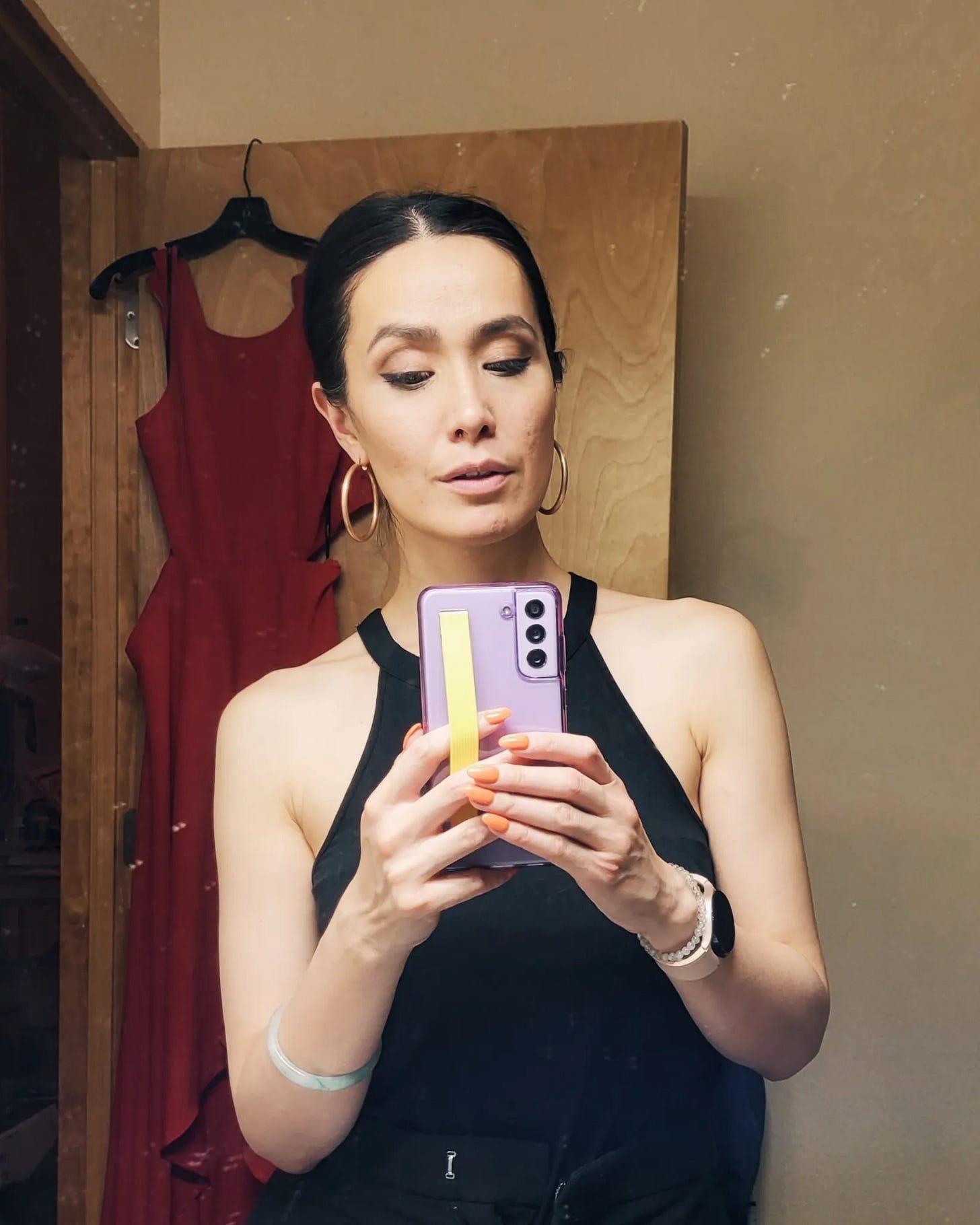The Problematic Concept of Modesty
How it makes girls and women responsible for the thoughts and actions of men.
Trigger warning: This post discusses sexual violence. Please read with care.
For three decades of my life I was a church-going, card-carrying Mormon woman.
I went to early morning seminary before high school for four years to study the scriptures (maybe this is why I’m not a morning person?)
I went to church youth dances and slow danced with cute boys with a Bible width between us (most of the time, anyway)
I even went to Sunday school with Ryan Gosling
As an impressionable tween, I was given a For the Strength of Youth pamphlet that taught principles to teens for how to stay on the straight and narrow.
One of them was modesty.
Modesty is the concept of dressing in a way that doesn't attract too much attention or lead the boys (or girls) to have impure thoughts. After all, sex is a sin next to murder.

Modesty instills in girls the idea that they are responsible for the thoughts, feelings and actions of teenage boys and men.
On the bright side, modesty became a puzzle to solve. Cultivating style within the parameters of modesty was a fun challenge. I hosted a modest fashion blog for years. I shopped with, professionally modeled for and worked for modest fashion brands. I wore tank tops under everything.
So. Many. Layers.






Later, before being married, I would be given a modesty garment in the temple to wear under my clothes—think long bicycle shorts and a cap sleeved tank top that covers the chest, torso and back. This was to show my commitment and fealty to God. The idea was to wear them all the time—unless in the shower, swimming, or having sex. Even when sleeping.
In the temple, the modesty garments were given to me to wear in sacred ceremony. Wearing garments to cover up is the Mormon woman’s version of a hijab. Unlike a hijab, the point is to never see the garments.
A decade later when I took those garments off for the last time, it would feel like a homecoming. I would realize how those garments became a barrier between my body and me. I forgot what my body looked like. I recognized her and cried over the bathroom sink.
I’m in favor of young girls learning to be conscious of the power of their budding bodies.
But I am not in favor of them being blamed for something that doesn't belong to them.
What a man chooses to think or do is nothing she can control.
What is evil about my shoulders?
What carnal thoughts do my knee caps inspire?
I outgrew modesty like a dress that was too tight. (That tight dress, ironically, would be considered immodest, ha.)
Dowdy clothes aren’t a fashion choice, but a mandate from men of God. I began to see how afraid men were of my sexuality, over the power that I wielded in my body.
If I wore something fitted to church, I remember the thirsty eyes of the Mormon missionaries, 19 to 21 year old men, forbidden to date for two years.
Women’s bodies are controlled in subtle ways like modesty and overt ways like access to abortion, and the laws that regulate it.
There’s a problematic narrative that women are “asking for it” if they wear more revealing clothes. Rise was founded by leaders from #MeToo, #StopAsianHate and the Women’s March that began advocating for survivors of sexual violence. They curated a fashion showcase of what sexual assault survivors of were wearing when they were assaulted. It might look different than what we have been led to believe it should.

The Rise website proclaims:
WHAT WE WERE WEARING AT THE TIME OF OUR ATTACK WAS NOT AN INVITATION FOR VIOLENCE.
WHAT WE WERE WEARING DID NOT CAUSE THE ATTACK; ONLY OUR PERPETRATORS CAUSED THE ATTACK.
WHAT WE WERE WEARING IS IRRELEVANT.
When culture blames women who have been victims of sexual assault and point fingers at what they wore, the underlying belief is that men were unable to control their animal urges. If she hadn’t been wearing XYZ, things could have turned out differently. This is an overly reductionistic way of thinking.
Woven into this narrative is the harmful concept of sex drive—the idea that sexual desire is a biological hunger, like thirst, hunger, or sleep that needs to be fulfilled for the sake of survival.
Spoiler alert. It’s not.
Sex Researcher Emily Nagoski told New Scientist, “You’re not going to die if you don’t have sex.”
“…portraying desire as a drive creates a dangerous sense of entitlement surrounding sex. If sex is a need like food or water, suddenly we can excuse inappropriate sexual behaviors as uncontrollable, and this puts people in very real danger.”
This leads some men to exercise their entitlement and take without consent. (Note: Sexual violence isn’t just something that men do to women. That said, 91% of rape victims are women, and 9% are men. Source: Humboldt).
It’s time to put responsibility back where it belongs.
May we live in a world where women can show their skin and shoulders and not be at risk of violence.
May we rewrite our narratives about desire to cultivate spaces where sexual safety is the norm.
It took years for me to shed the skin of modesty like a snake.
If you see my shoulders now, Mormons know this is code for me leaving the fold, a harbinger of my apostasy. They are a sign of my sovereignty.
If this post resonated with you, please like and subscribe and consider sharing it with a friend who might enjoy it. Feel free to share your thoughts in the comments below!







Thank you for sharing your perspective and for also not being downright destructive of the church. I'm not even sure why I say that, except I don't like it when anything is completely ridiculed.
I was a member growing up just like you described. There's no defining moment so much for my inactivity. I'm not even sure what to think about in regards to religion and spirituality.
I did find it interesting that modesty was pushed as a way to"stop ones thoughts." I definitely remember feeling that being taught. I also found it funny that this was the course that was chosen to "remedy" this "issue."
I have traveled now to the Philippines and to Spain and Italy, there I saw many women choosing to express their individuality and their sense of fashion. Was some of it revealing, yes. You know what I thought though? I thought it was nice that they wanted to look and feel sexy. I'm guessing some of it was to draw attention, most people do want attention, but I felt like it was more about feeling comfortable and happy with themselves.
I'm a guy and I've certainly my issues with impure thoughts, but I wholly take responsibility if something crosses my mind. It's not someone else's fault because they chose to dress a certain way or because something showed because of their movent. I'm responsible for my thoughts and my actions.
I feel like this is something that is eroding in society in general, personal responsibility. I could go on, but figure this is long enough as it is. I definitely think people need to take up responsibility for their thoughts and actions in life, basic manners and common decency included.